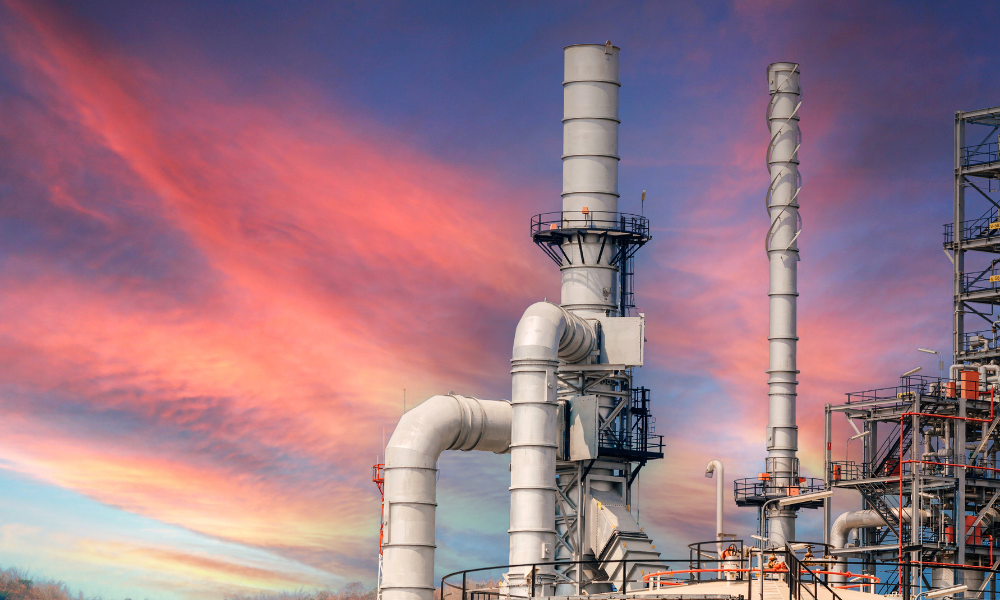Trans Mountain shifts from cost centre to revenue source while China emerges as top crude buyer

Trans Mountain Corp. expects to return $1.25bn to the federal government in 2025, according to The Globe and Mail, driven by record crude shipments and lower financing costs following a major debt refinancing.
The pipeline’s recent performance reflects changing global oil flows and a broadening market for Canadian crude.
As per Reuters, China has emerged as the top buyer of oil transported through the expanded system, averaging 207,000 barrels per day since full operations began—up from just 7,000 barrels per day in the decade prior.
In the same period, the US imported 173,000 barrels per day.
According to ship tracking data cited by Reuters, other buyers now include South Korea, Japan, India, Brunei, and Taiwan.
Statistics Canada reported that Canadian crude exports to non-US countries rose by nearly 60 percent in 2024 to a record 183,000 barrels per day.
This shift follows strained Canada-US trade relations and global efforts to replace sanctioned supplies from Russia and Venezuela.
Trans Mountain’s capacity averaged 77 percent in 2024, below the 83 percent it had forecast, as per Reuters. High tolls aimed at recovering construction cost overruns contributed to the gap.
The company expects the pipeline to be 84 percent full this year and to reach 92 percent in 2027.
As of the first quarter of 2025, Trans Mountain shipped an average of 757,000 barrels per day, or about 85 percent of its full capacity of 890,000 barrels per day, as per Financial Post.
Earnings before interest, taxes, depreciation and amortization were $568m, up sharply from $36m in the same quarter a year earlier.
Net income was $148m, compared to $158m a year earlier.
The federal government acquired the Trans Mountain pipeline from Kinder Morgan in 2018 for $4.5bn after delays and protests stalled its $5.4bn expansion plan.
The final price tag reached $34bn.
In December 2024, Canada TMP Finance Ltd.—a subsidiary of the Canada Development Investment Corp.—provided funding to refinance $17.9bn of debt, reducing interest costs and aligning the corporation’s capital structure with typical pipeline companies.
Trans Mountain paid $311m to its parent during the first quarter, consisting of $148m in interest and $163m in dividends.
According to chief executive Mark Maki in The Globe and Mail, those payments are expected to grow significantly from 2026 onward.
“We need to optimize the system that we have,” Maki said, pointing to two ongoing capacity enhancement projects.
One involves introducing additives to improve oil flow, estimated to cost between $25m and $30m.
Another, more extensive upgrade, will increase pumping power across the system and could cost $3bn to $4bn. Together, these projects could add up to 300,000 barrels per day in capacity.
According to Financial Post, Maki noted that operating below full capacity helps prevent Canadian heavy crude from facing steeper price discounts.
“What’s important really is to keep a little bit of slack in the system,” he said, explaining that oversupply relative to takeaway capacity could widen price differentials.
Since the expansion began commercial operations in May 2024, 266 crude vessels have been loaded.
According to The Globe and Mail, 74 ships departed from the Westridge Marine Terminal in Burnaby in the first quarter of 2025, with 90 percent loaded on time.
Destinations were broadly split between the US West Coast and Asia.
Maki added that dock loading has been efficient and that the pipeline has functioned as intended: “Where the oil has gone in terms of markets, it’s done exactly what it was supposed to do when it was originally envisioned.”
While the federal government intends to eventually sell the pipeline, Maki told Financial Post that this won’t occur until capacity upgrades are further along and legal disputes over toll rates before the Canada Energy Regulator are resolved.
He also acknowledged interest in potential Indigenous equity ownership when the timing is right.
Maki described 2025 as a “transitional” year for the Crown corporation, with continued cleanup from construction and early dividend payments.
“Next year will be a much more normal one,” he told Financial Post.
He also stated that Trans Mountain remains open to further market-expanding infrastructure projects if the private sector is unable to take the lead.
“If that can’t happen, and it’s in the national interest, Trans Mountain is here,” he said.



